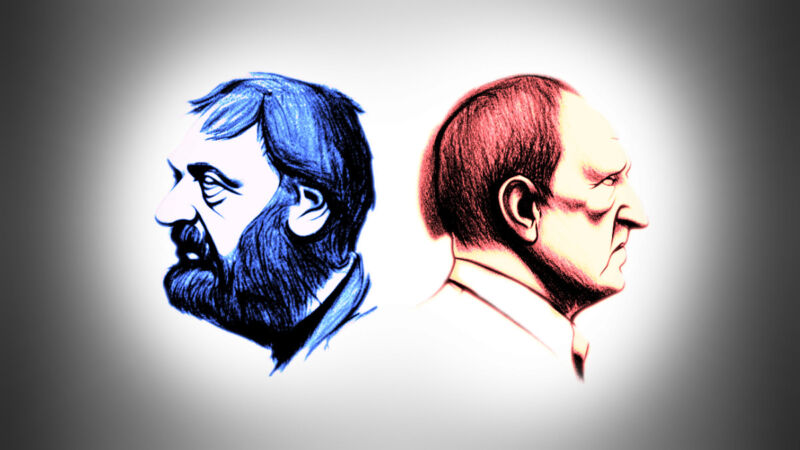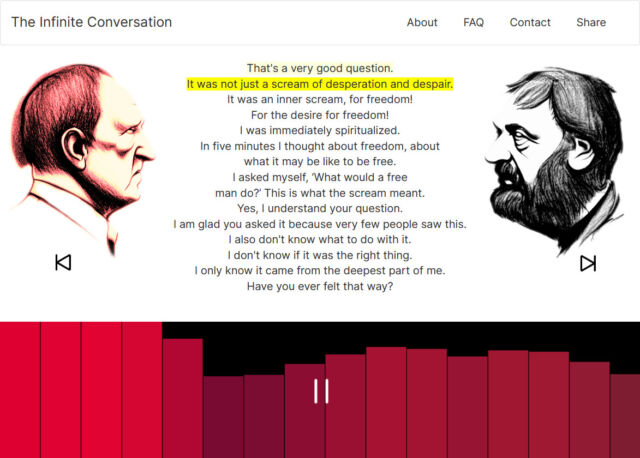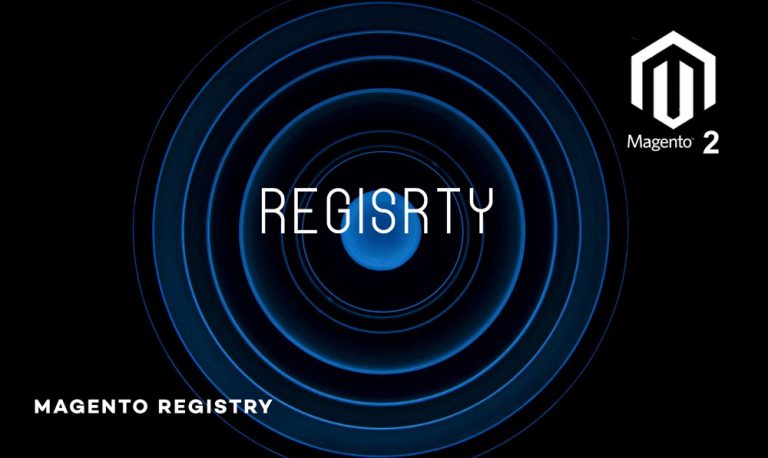
reader comments
70 with 61 posters participating, including story author
This week, an Italian artist and programmer named Giacomo Miceli debuted The Infinite Conversation website, an AI-powered nonstop chat between artificial versions of German director Werner Herzog and Slovenian philosopher Slavoj Žižek, complete with realistic voices.
Upon visiting the site—which is unaffiliated with either person—you’ll see AI-generated charcoal portraits of the two men in profile. Between them, a transcript of AI-generated text is highlighted in yellow as AI-generated voices simulating those of Herzog or Žižek read through it. The conversation goes back and forth between them, complete with distinct accents, and you can skip between each segment by clicking the arrows beneath the portraits.
Its creator positions the site as social commentary on audio deepfakes and upcoming technologies that may undermine trust in media in the near future. “This project aims to raise awareness about the ease of using tools for synthesizing a real voice,” Miceli writes on the site. “Right now, any motivated fool can do this with a laptop in their bedroom.”

Herzog and Žižek seem like particularly ripe targets for AI impersonation because listeners might be predisposed to believe that the philosophical director and philosopher might say deep-sounding things that are difficult to understand. As a result, when the GPT-3-style large language model behind The Infinite Conversation spits out philosophical nonsense, it almost sounds like the real thing. Here’s an example of something the faux Herzog said on the site:
wrote on Hacker News that he might create an explanatory write-up within the next week. “The generation of the script itself is done using a popular language model that was fine-tuned on interviews and content authored by each of the two speakers,” he writes in the site’s FAQ.
On Ars, we’ve previously covered technology that can manipulate your voice using AI or even allow someone to audibly impersonate someone else. And in October, we saw a podcast that featured similar voice synthesis technology to power a fake interview between Steve Jobs and Joe Rogan.
Few may doubt that we are on the vanguard of a new age in synthetic media, but when the machines speak, will they make sense? On The Infinite Conversation, that is not quite the case—yet. “Everything you hear is fully generated by a machine,” writes Miceli. “The opinions and beliefs expressed do not represent anyone. They are the hallucinations of a slab of silicon.”






